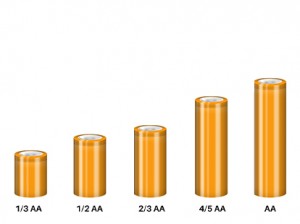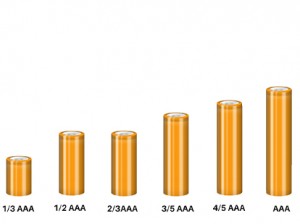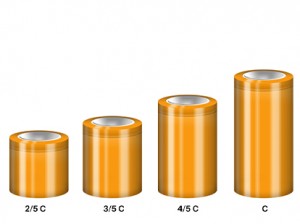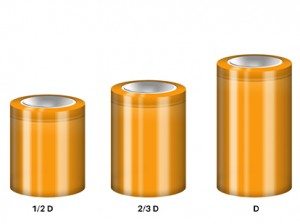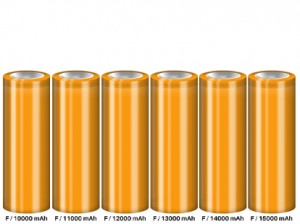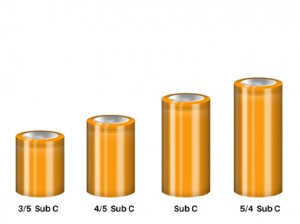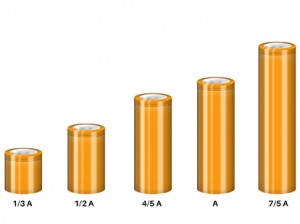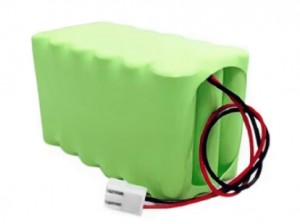Nickel-metal hydride (NiMH) and nickel-cadmium (NiCad) are the most popular rechargeable battery technologies today. They share some similarities but also have significant differences in their performance, capacity, environmental impact, and cost. For buyers sourcing rechargeable batteries, especially in large quantities, it is important to understand the key characteristics of the different battery types to choose the one that best suits your needs.
Introduction to NiMH and NiCAD Batteries
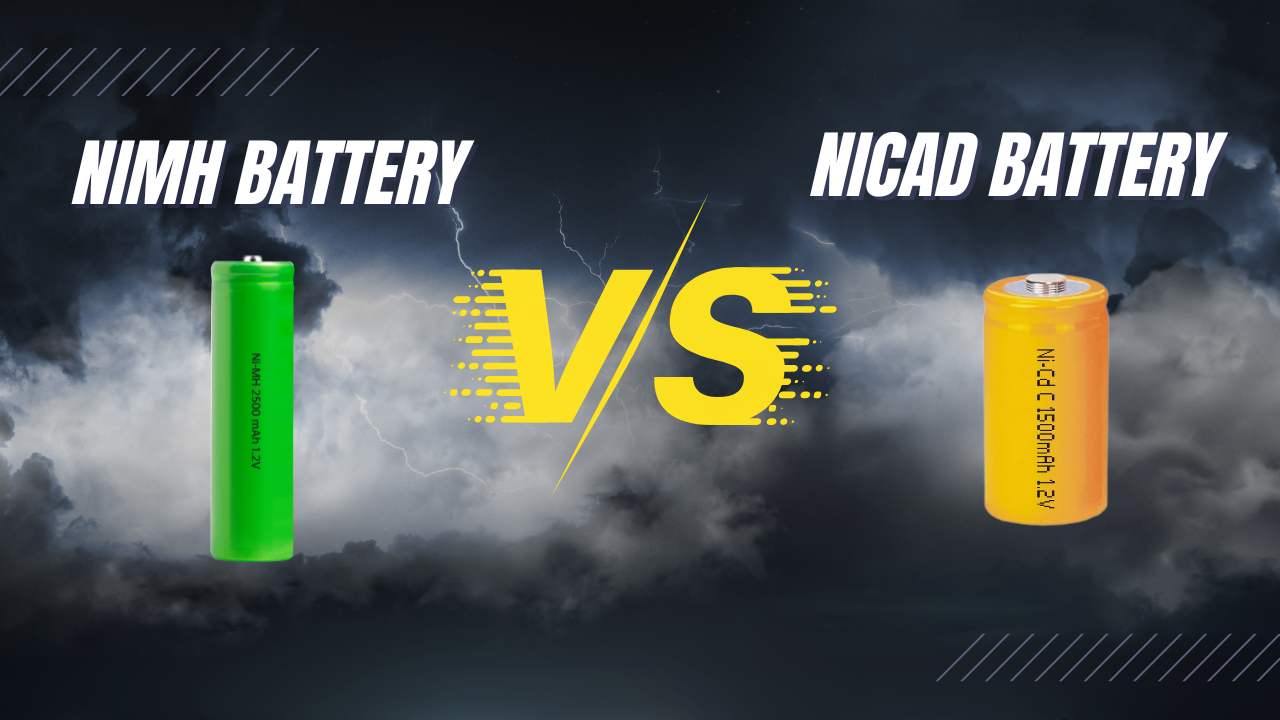
Nickel-Metal Hydride (NiMH) Batteries
NiMH batteries were developed in the 1980s as a more environmentally friendly alternative to NiCad batteries. They consist of a nickel hydroxide cathode, a metal hydride anode, and an alkaline electrolyte. NiMH batteries offer a higher energy density, longer service life, and improved performance compared to their NiCad counterparts. As a professional NiMH battery supplier in China, our factory offers a wide range of high-quality NiMH batteries for various applications. We have been engaged in NiMH battery research, development, and production for more than 13 years, and our experienced team is dedicated to providing customers with the best NiMH battery solutions.
Nickel-Cadmium (NiCad) Batteries
NiCad batteries have been in use since the early 20th century. They comprise a nickel oxide hydroxide cathode, a cadmium anode, and a potassium hydroxide electrolyte. Although NiCad batteries have served various industries for decades, their use has decreased in recent years due to environmental concerns and the emergence of superior alternatives like NiMH batteries.
Comparing NiMH and NiCad Batteries
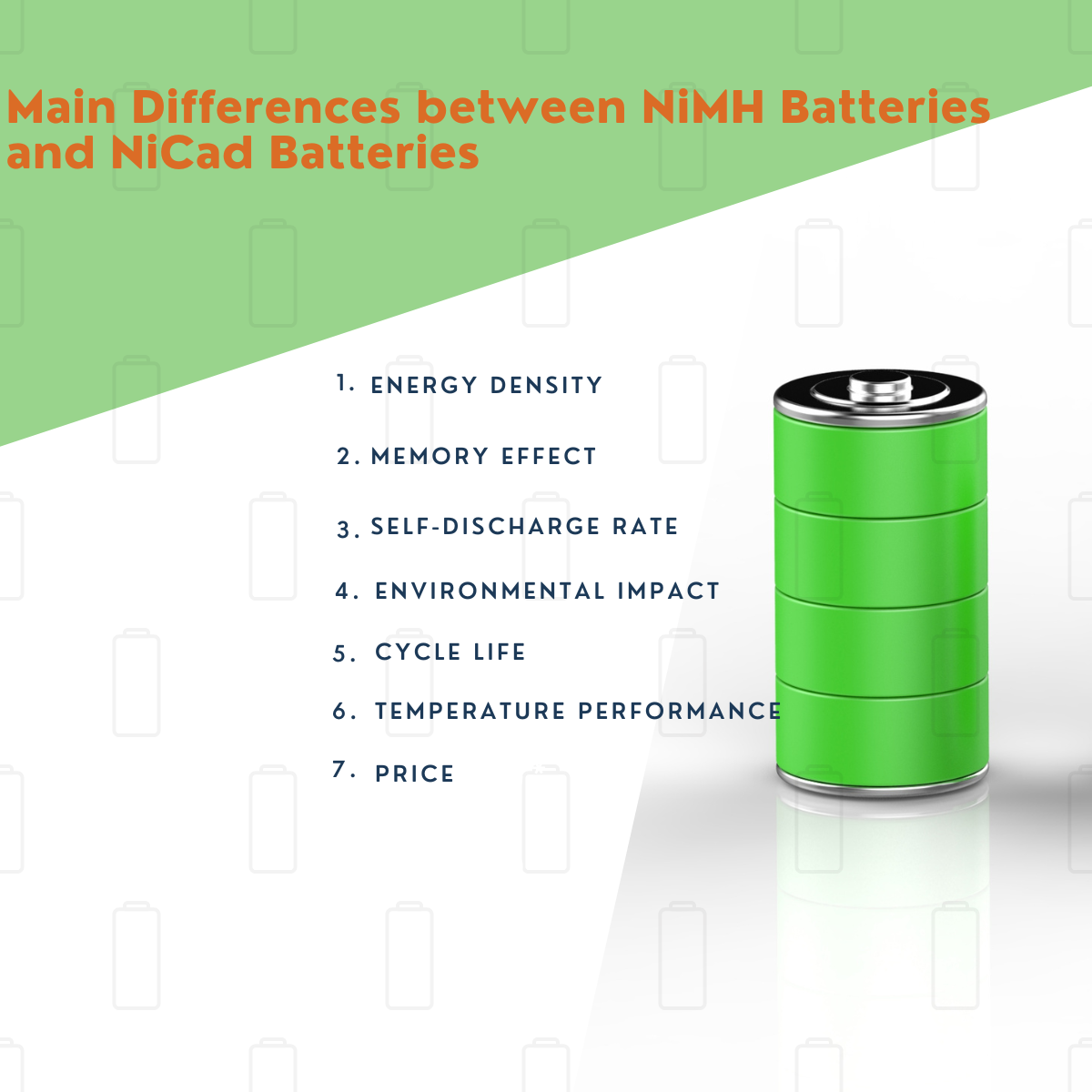
NiMH batteries are a newer technology and were developed to improve on some of the limitations of NiCad batteries. The main differences between the two battery types come down to energy density, memory effect, environmental impact, and price.
1. Energy Density
Energy density refers to the amount of energy stored per unit volume or mass. NiMH batteries exhibit a higher energy density than NiCAD batteries. They can store up to 50-100% more energy than NiCAD batteries of the same size and weight. This makes NiMH batteries an ideal choice for applications requiring lightweight and compact power sources, such as portable devices, electric vehicles, and medical equipment.
2. Memory Effect
The memory effect is a phenomenon that occurs in rechargeable batteries when they are repeatedly charged before being completely discharged, causing a decrease in their capacity. NiCAD batteries are more susceptible to the memory effect than NiMH batteries. This means that NiMH batteries can be charged at any state of discharge without experiencing a significant reduction in their overall capacity.
3. Self-Discharge Rate
Self-discharge is the process by which a battery loses its charge over time when not in use. NiMH batteries generally have a higher self-discharge rate compared to NiCAD batteries. However, advancements in technology have led to the development of low self-discharge NiMH batteries (LSD NiMH), which can retain their charge for several months, making them comparable to NiCAD batteries in terms of self-discharge.
4. Environmental Impact
NiCAD batteries contain cadmium, a toxic heavy metal that poses significant environmental risks when improperly disposed of. In contrast, NiMH batteries are more eco-friendly, as they do not contain any hazardous materials. This has led to stricter regulations on the use and disposal of NiCAD batteries, resulting in a shift towards the adoption of NiMH batteries in various industries.
5. Cycle Life
Cycle life refers to the number of times a battery can be charged and discharged before its capacity drops below a specified level. Both NiMH and NiCAD batteries have good cycle life, generally ranging from 500 to 1,000 cycles. However, NiMH batteries often exhibit a longer cycle life than NiCAD batteries, especially when properly maintained and not subjected to deep discharge cycles.
6. Temperature Performance
NiCAD batteries usually perform better than NiMH batteries at low temperatures. They can maintain their capacity and deliver consistent power even in cold environments. On the other hand, NiMH batteries may experience reduced capacity and performance under low-temperature conditions. This makes NiCAD batteries more suitable for applications in extreme temperature environments.
7. Price
In general, NiMH batteries tend to be slightly more expensive than comparable NiCad batteries. However, the price difference has reduced over time and now depends more on the quality and specifications of the specific battery. When you factor in the improved performance, reduced memory effects, and environmental benefits of NiMH batteries, the small price premium is often worthwhile for most buyers.
Conclusion
In summary, while NiCad batteries paved the way for rechargeable battery technology, NiMH batteries have surpassed them in most regards. For portable power applications where energy density, lack of memory effect, and eco-friendliness are concerns, NiMH batteries are usually superior to NiCad batteries, despite the marginally higher price. For high-drain or high-volume applications, NiMH's performance and lifespan benefits often make them more cost-effective in the long run as well.
By understanding the differences between NiMH and NiCAD batteries, businesses can make informed decisions and select the most appropriate battery technology for their needs, ensuring optimal performance, reliability, and sustainability.
Weijiang Power-13 Years Experience in NiMH Battery Manufacturing
We use advanced equipment and strict quality control measures to ensure the reliability and safety of our NiMH batteries. With our competitive prices, fast delivery, and excellent customer service, we are committed to becoming your trusted partner for all your NiMH battery needs.
In addition to our standard NiMH battery products, we also offer custom NiMH battery services to meet the specific needs of our customers. Our custom NiMH battery services include designing and producing NiMH batteries in different sizes, shapes, and capacities and offering customized packaging and labeling. You can kindly learn more about our custom NiMH battery services from below photo.
Post time: Aug-24-2022

